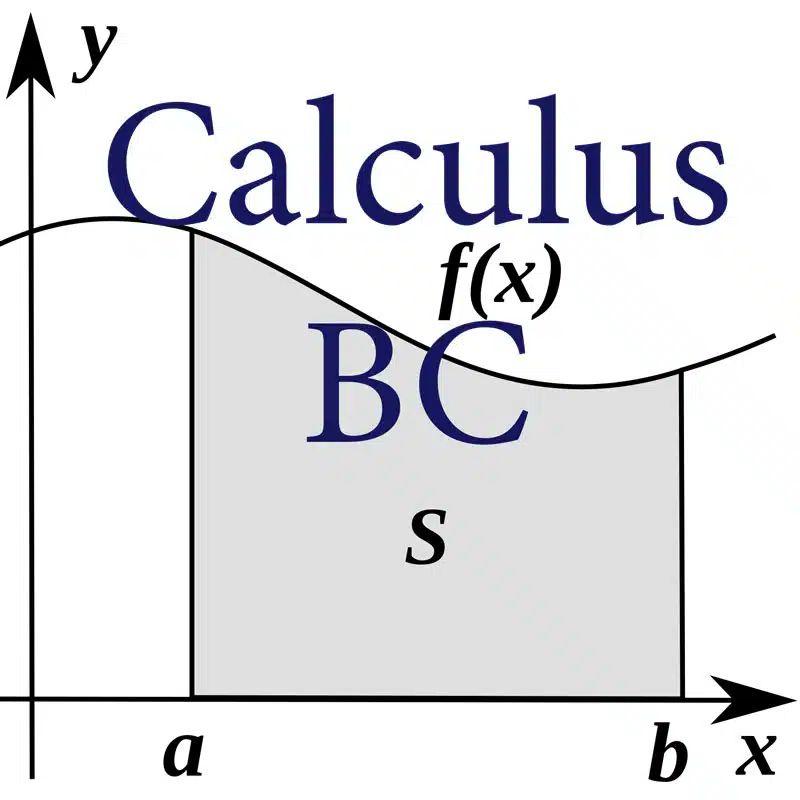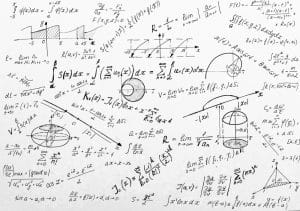How Hard Is AP Calculus BC? A Comprehensive Guide
As the most advanced high school math course, AP Calculus BC can be a daunting challenge for many students. However, with hard work, dedication, and the right preparation, achieving success on the AP Calculus BC exam is possible. In this comprehensive guide, we’ll dive into how hard is AP Calculus BC and explore everything you need to know to master this challenging course.
Understanding the Basics of AP Calculus BC
AP Calculus BC is a college-level course that covers both single-variable and multivariable calculus concepts. Students will learn to apply calculus to real-world problems, such as maximizing revenue and optimizing the path of a projectile. Some of the key topics covered in the course include limits, derivatives, integrals, differential equations, and vector calculus.
In addition to these topics, students will also learn about series and sequences, which involve the summation of infinite terms. This concept is important in many fields, including physics, engineering, and finance. The course will also cover applications of calculus in areas such as optimization, related rates, and curve sketching. By the end of the course, students will have a strong foundation in calculus and be well-prepared for college-level math courses.
What Makes AP Calculus BC Difficult?
One of the biggest challenges of AP Calculus BC is the sheer volume of material that you need to learn. In addition, calculus is a subject that builds upon itself, so if you don’t have a solid foundation in the basics, you’ll struggle to understand the more advanced concepts. Finally, the AP Calculus BC exam is notoriously difficult, with a high percentage of students failing each year.
Another factor that contributes to the difficulty of AP Calculus BC is the level of abstraction involved in the subject matter. Calculus deals with concepts that are not easily visualized, such as limits, derivatives, and integrals. This can make it challenging for students to grasp the underlying principles and apply them to real-world problems.
Additionally, the rigorous analytical thinking required in calculus can be a significant adjustment for students who are used to more concrete, formulaic approaches to math. Overall, AP Calculus BC demands a high level of dedication, persistence, and critical thinking skills from students who wish to succeed.
How to Prepare for AP Calculus BC
The key to success in AP Calculus BC is to start preparing early. Begin by reviewing the fundamental concepts of algebra and trigonometry, which are essential for success in calculus. You should also practice solving calculus problems regularly, using resources such as textbooks, online courses, and practice tests. Additionally, consider joining a study group or working with a tutor to get additional support and feedback.
Furthermore, it is important to develop good study habits and time management skills. AP Calculus BC is a challenging course that requires a significant amount of time and effort. Therefore, it is crucial to create a study schedule and stick to it. This will help you stay on track and avoid falling behind. Another helpful tip is to take advantage of the resources available to you.
Your teacher, classmates, and school may offer additional support and resources, such as review sessions, study guides, and extra practice problems. Don’t be afraid to ask for help or seek out additional resources if you are struggling with a particular concept or problem.
By following these tips and putting in the necessary time and effort, you can prepare yourself for success in AP Calculus BC. Remember to stay focused, stay motivated, and stay committed to your goals. With hard work and dedication, you can achieve great things in this challenging and rewarding course.
Tips for Mastering AP Calculus BC Concepts
To excel in AP Calculus BC, it’s essential to understand the underlying concepts, rather than simply memorizing formulas. Make sure to practice solving problems using a variety of techniques, and always be on the lookout for connections between different concepts. Additionally, don’t be afraid to ask questions or seek out additional resources if you’re struggling with a particular topic.
One effective way to deepen your understanding of calculus concepts is to work through real-world applications. Look for examples of calculus in fields such as physics, engineering, and economics, and try to apply your knowledge to solve problems in these areas. This will not only help you to see the practical applications of calculus but also to develop a more intuitive understanding of the concepts.
Another important aspect of mastering calculus is developing strong study habits. Set aside dedicated time each day to review your notes, work through practice problems, and seek out additional resources. Consider forming a study group with classmates to discuss challenging concepts and work through problems together. By putting in consistent effort and seeking out support when needed, you can build a strong foundation in calculus and achieve success in your AP Calculus BC course.
A Breakdown of the AP Calculus BC Exam Format
The AP Calculus BC exam consists of two parts – a multiple-choice section and a free-response section. The multiple-choice section is 1 hour and 45 minutes long and consists of 45 questions. The free-response section is 1 hour and 30 minutes long and consists of 6 problems. The exam covers both single-variable and multivariable calculus concepts, and you’ll be expected to solve problems both analytically and graphically.
In addition to the multiple-choice and free-response sections, the AP Calculus BC exam also includes a calculator section. This section allows students to use a graphing calculator to solve problems and is 55 minutes long. However, not all problems in the exam can be solved using a calculator, so it’s important to have a strong understanding of calculus concepts and problem-solving techniques.
It’s also worth noting that the AP Calculus BC exam is considered one of the most challenging AP exams, with a passing rate of around 60%. To succeed on the exam, it’s important to start preparing early and consistently review calculus concepts throughout the year. Many students also find it helpful to work through practice problems and take practice exams to get a sense of the exam format and the types of questions that may be asked.
Common Mistakes to Avoid in AP Calculus BC
One common mistake that students make in AP Calculus BC is focusing too much on memorizing formulas, rather than understanding the underlying concepts. Additionally, students often struggle with applying calculus concepts to real-world problems, which requires a deep understanding of the concepts. Finally, it’s essential to avoid careless mistakes, such as forgetting to use the chain rule or forgetting to take the derivative of a particular term.
To avoid these mistakes, it’s crucial to practice regularly and seek help when needed. Joining a study group or working with a tutor can provide additional support and guidance. It’s also important to stay organized and keep track of assignments and deadlines to avoid last-minute cramming and stress.
Another common mistake that students make in AP Calculus BC is not showing their work clearly and thoroughly. It’s important to write out each step of the problem-solving process, including any formulas used and explanations for each step. This not only helps with understanding the concepts but also ensures that partial credit can be awarded if the final answer is incorrect.
In summary, to succeed in AP Calculus BC, students should focus on understanding the concepts rather than just memorizing formulas, practice regularly, seek help when needed, show their work clearly and thoroughly, and avoid careless mistakes. By following these tips, students can improve their understanding of calculus and achieve success in the course.
Strategies for Solving Complex Calculus Problems
To solve complex calculus problems, it’s important to be systematic and methodical in your approach. Begin by reading the problem carefully, identifying the key concepts and any constraints. Then, use your knowledge of calculus to develop a plan for solving the problem, checking your work as you go. Finally, make sure to use proper notation and label your answers clearly.
In addition to these general strategies, there are a few specific techniques that can be helpful when solving complex calculus problems. One such technique is to break the problem down into smaller, more manageable parts. This can help you to better understand the problem and identify any potential roadblocks or areas where you may need to apply additional calculus concepts.
Another useful strategy is to work backward from the answer. This can be particularly helpful when dealing with complex calculus problems that involve multiple steps or require the use of advanced calculus concepts. By starting with the answer and working backward, you can often identify the key steps and concepts needed to arrive at the solution.
Overall, solving complex calculus problems requires a combination of careful reading, systematic thinking, and a deep understanding of calculus concepts and techniques. By following these strategies and techniques, you can improve your ability to tackle even the most challenging calculus problems with confidence and success.
Resources to Help You Succeed in AP Calculus BC
There are a variety of resources available to help you succeed in AP Calculus BC. These include textbooks, online courses, practice tests, and study groups. Additionally, consider seeking out a tutor or working with your teacher to get additional support and feedback. Some sites cover a wide range of topics, from limits and derivatives to integrals and differential equations.
Real-life Applications of AP Calculus BC
One of the most exciting aspects of AP Calculus BC is its real-world applications. Calculus is used in a variety of fields, including physics, engineering, economics, and biology. For example, calculus can be used to model the spread of a disease, optimize the design of an airplane, or model the behavior of a financial market.
However, the applications of calculus are not limited to just these fields. Calculus is also used in computer science, particularly in the field of artificial intelligence and machine learning. Calculus is used to optimize algorithms and models, making them more efficient and accurate. Another interesting application of calculus is in the field of music. Calculus can be used to analyze and understand the patterns and structures in music, such as the frequencies and harmonies in a piece of music. This can lead to new insights and innovations in the field of music theory and composition.
In conclusion, AP Calculus BC is a challenging but rewarding course, and with the right preparation and mindset, you can achieve success on the AP Calculus BC exam. Use these tips and resources to help you master the core concepts of calculus, and don’t be afraid to seek out additional support and guidance along the way. With hard work and perseverance, you can unlock the power of calculus and unleash your full potential as a mathematician and problem-solver.










































